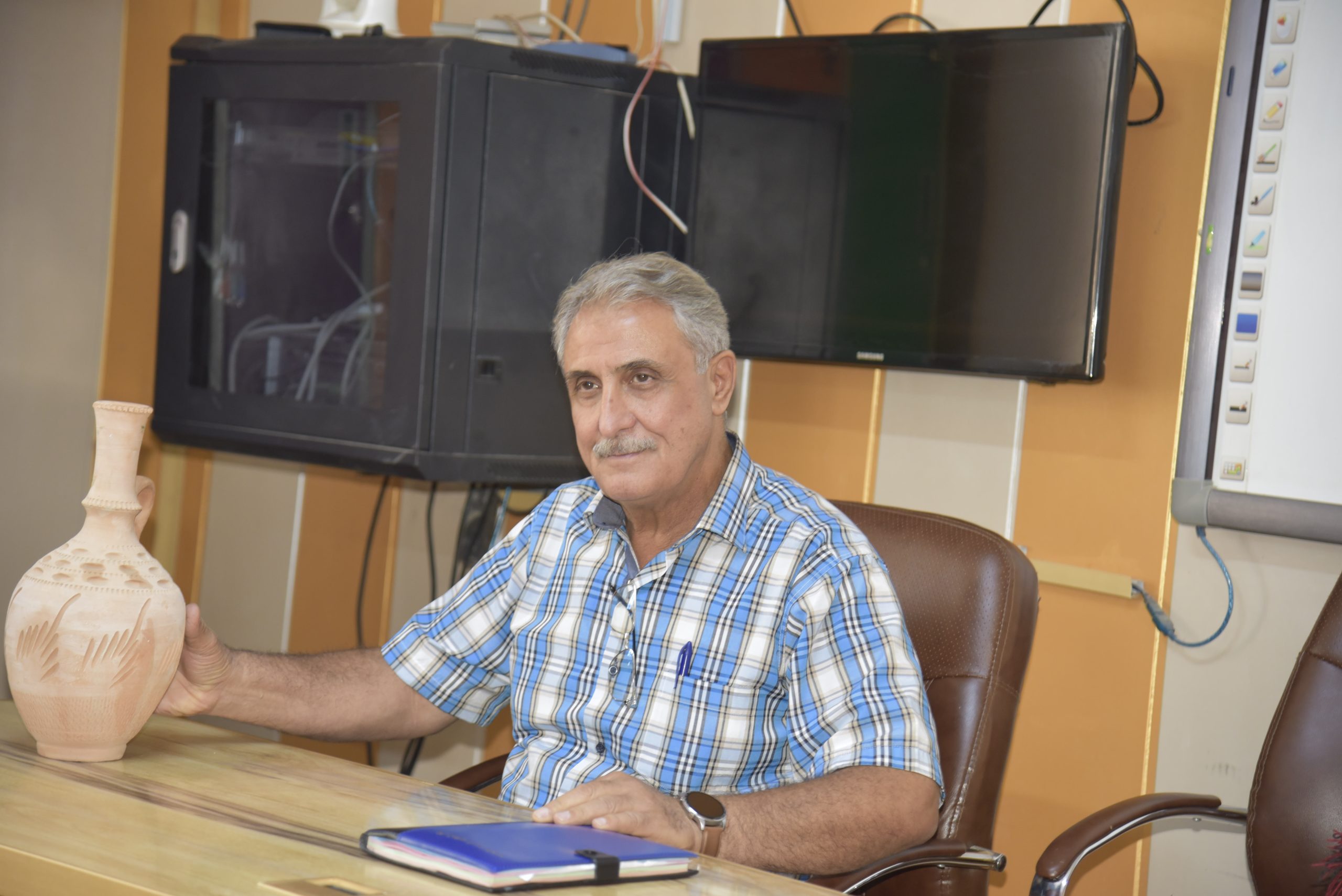The College of Arts holds a workshop entitled Clean Water and How to Rationalize Its Consumption
- Categories General news and activities

Under the supervision of the Dean of the College, Professor Dr. Alaa Shaker Mahmoud, the College of Fine Arts held on Tuesday, 7/9/2024, a workshop entitled Clean Water and How to Rationalize Its Consumption, in which Assistant Professor Imad Khudair Abbas lectured, in the presence of the college’s teaching ladies and gentlemen, and in the interactive classroom hall within the College of Arts. Beautiful University of Diyala. The workshop included several important sections related to water, under the slogan that rationalizing water consumption is a national duty and an invaluable wealth. The lecturer mentioned the following:
There is almost general agreement that water waste is large, especially in countries with hot climates such as Iraq and the Arab Gulf states. According to statistics, Saudi Arabia is the country that consumes and wastes most clean water. Because of the fresh water crisis that began to worsen in the world during the last ten years, perhaps for every barrel of oil there will be a barrel of water. Hence, everyone must take this into account by rationalizing water consumption. Many directives and instructions have been issued regarding this matter, as follows:
1- Close the water tap and do not leave it open for a while.
2- Repairing fractures and cracks in water pipes from which clean water leaks.
3- Do not leave the tap open while bathing, ablution, shaving, etc.
4- During the winter, do not leave the shower open until hot water arrives without benefit. Rather, put the water in a bowl and benefit from it by washing fruits or clothes, and do not waste it without benefit.
5- Install a rationalization device on the shower head to reduce the amount of consumption by approximately 25%.
6- When using the washing machine, let it be completely full to save water and electricity.
7- Water the plants early in the morning to reduce water evaporation.
In the field of arts, ceramics has a close relationship with water. The jar or (tanka) in general designations, or the zir (love) with a kasra-ha, may be one of the most important aspects of the previous life of Iraqi society, which works to filter and purify water and the extent of the great economy of clean and pure water despite the limited general culture of the people. at that time .
